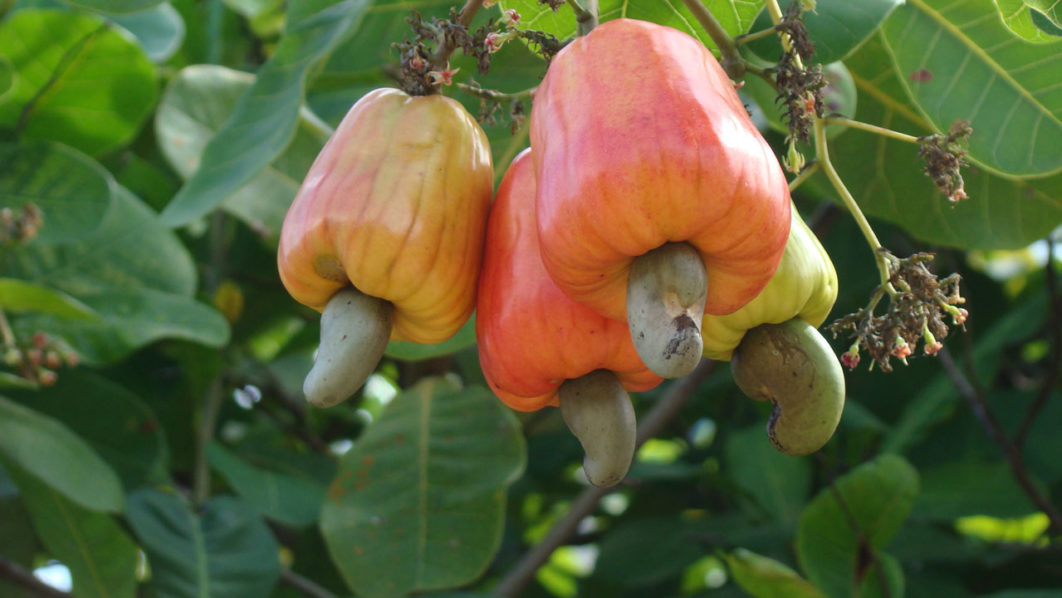
Again, the African Cashew Alliance (ACA) has expressed displeasure that only a meagre 20 per cent of the total cashew output produced in Africa is retained within the continent, while the remaining 80 per cent is retained in America, Europe and Asia, resulting in huge foreign exchange losses to the continent.
The body expressed that the continent has the potential of reversing the trend, in order to position the sector in its pride of place. The ACA President, Babatola Faseru, told The Guardian that cashew has become an important commodity in the entire continent, noting that the continent produces over 50 per cent of the world’s cashew output, which signals the significant and strategic position of the continent in the scheme of things, adding that the ACA is at the point of ensuring and engendering sustainability and competitiveness within the African cashew industry.
Faseru said: “We can earn more foreign exchange across the producing countries. We want to retain the value of what we are producing. As you are aware that we only retain about 20 per cent of the value of most of the commodities produced in Africa, the remaining 80 per cent is retained in America, Europe and Asia.
“We want to change the story, why can’t we reverse it and that’s what we are doing and that means we have to work more on our production, making it sustainable. We have to ensure that there’s quality in what we produce, by ensuring that our produce are of top grade. We need to embrace industrialisation through cashew processing because of the potential of the produce. It is sad that as a large chunk of the produce are exported, the continent is also exporting her job opportunities.
“We want to ensure that we get the kernels, market it locally and internationally – we can also get the Cashew Nut Shell Liquid (CNSL), which is fantastic for cosmetics industries, nothing in the cashew nut is a waste, we want to ensure that we can even provide power through the shells.”
Continuing, Faseru, who disclosed that the produce has much potential, said: “Then, we talk about the cashew apple itself, through which we can get wine and juice. The vitamin in the cashew juice is six times the vitamin in orange, you can see the potential we have in cashew and that is what we want to do. We want to ensure that we move the product from the position of potential to reality,” he said.
The President assured that the ACA is in the frontline when it comes to African cashew development, noting that a lot has been done. “We are not where we were a decade ago, we have made a lot of progress, and in terms of the quantity we are doing and also value addition. Though we are not where we intend to be, we are definitely moving.
“You’ll see more factories coming up; you’ll see a lot of engagements with the government, making the government understand to put more focus on cashew, considering the revenue potential it has. Even in Nigeria now, you’ll see cashew is either number two or three non-oil foreign exchange earners for the economy and the farmers today are doing quite well, there’s more engagement and knowledge sharing.
“In Nigeria, within the last 10 years, we have moved from a level of 100,000 tonnes to about 260,000 to 270,000 tonnes yearly. We can see a lot of factories coming up and that’s why we are at the next level of policy reassessment, policy formulation, engaging our government more than before to give more assurance and more impetus to invest within and also encourage people outside of Africa to invest in the continent.”
It was learnt that one of the major obstacles to the growth of the industry, especially in Nigeria, is the incessant rejection of Nigeria’s cashew at the international market, basically due to quality problem, causing the disruption of the product’s value chain by exporters.
This has been largely linked to the activities of exporters, especially the foreigners who have formed the habit of invading farm gates to buy directly from farmers, without any recourse to quality control.
The National President, National Cashew Association of Nigeria (NCAN), Dr. Ojo Joseph Ajanaku, expressed optimism that Nigeria will soon become another Vietnam – importing raw cashews for processing. “This is because Nigeria is rich, whenever we are investing in any sector that is profitable, we invest massively.
Ajanaku said: “The government has interest of the people at heart, if this issue of value chain disruption and other challenges are not addressed, the farmers will continue to lose a lot of money to the foreigners. They are here to trade. The aim of every business person is to maximise profit and that’s the fact. They evade taxes; they pass through shortcuts in everything they want to do, in collaboration with some Nigerians.
“The goods still leave our ports because they’ll always tell you that they can have their way and that’s the truth. As an association, we have our ears to the ground this time because we are working with all agencies and we have been able to pin our people down to give us information. I can tell you confidently that if anybody is taking cashew out of this country, especially in another name, the container will be confiscated, no matter who is in the team because we are ready for them this time around.”
The Managing Director, Starlink Global Limited, Adeyemi Folasole Adeniji, who said the industry is capable of generating over $15b to the country’s economy, lamented that Nigerians are bearing the brunt of the disruption because as the products are being exported, the money is not being fully repatriated back to the economy.
He said: “The disruption in the value chain is not only about the foreigners; it is just that foreigners are more culpable in the disruptions than Nigerian exporters. There is a value chain; exporters should play the role of an exporter and stay in Lagos, and any other place close to the Ports – Port Harcourt, Calabar and others.
“We have the licensed buying agents, we have the farmers, we also have other ones that are between the agents and the licensed buying agents. This is the chain; all of them make their money, they are in the value chain and they should not be cut off. But nowadays, those exporters have cut off that structure and have directly moved to the farms.
“So, the implications are two – one, the farmers are in a hurry to quickly get the products out, by not doing it properly, leading to bad quality. When you have bad quality, they’ll reject your products at the international level and that gives Nigeria bad name, that’s what we want to stop.”
Adeniji said if the sector players follow the rules and the complete value chain, where everyone plays their parts, they’ll make money, improve the quality and it will give the country a good name.
“They’ll buy cashew from Nigeria and go to Niger Republic or Cotonou, Benin Republic to get the certificate of origin and export. So, that money doesn’t come back here. The Forex problem we have has also contributed to it because the money doesn’t come back to this country, it is Nigerians who are suffering, we have the products being exported but the money not being fully repatriated back to the country’s economy.
“The country can generate over $15b from cashew through value addition. Vietnam started cashew processing in 1992; today they are the largest processor of cashew. Over 75 per cent of the cashew globally is cultivated only in Africa. Nigeria signed the Africa Free Trade Agreement, if these cashews are exported from Nigeria, it will add value to our economy,” Adeniji said.






